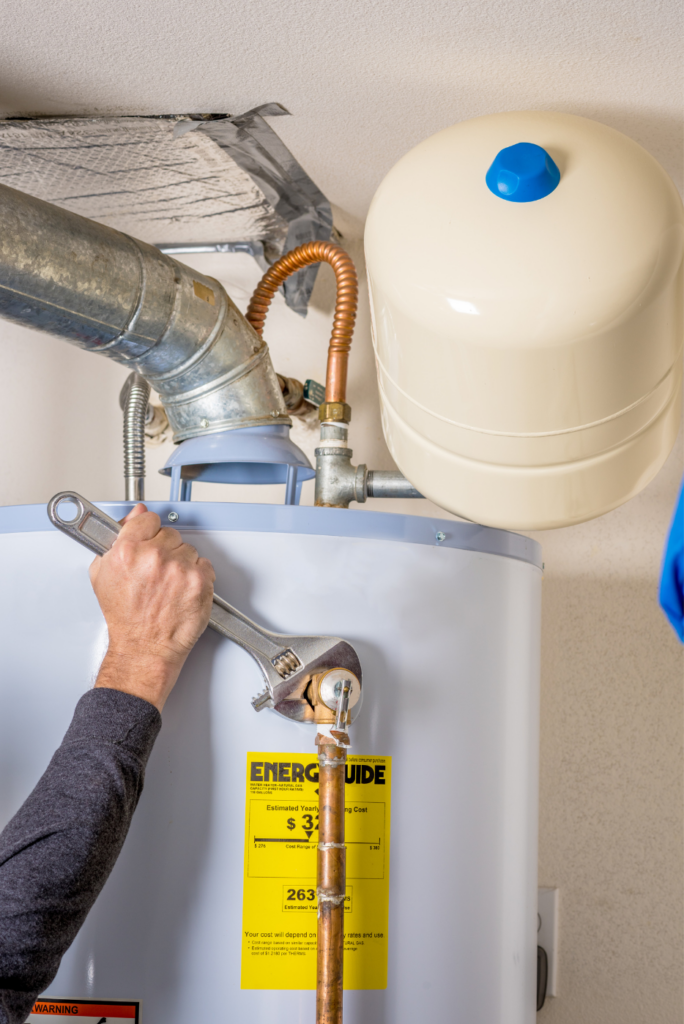Dealing With Heater Problems: A Step-By-Step Guide For The Handling Standard Issues
Dealing With Heater Problems: A Step-By-Step Guide For The Handling Standard Issues
Blog Article
Just about every person is bound to have his or her own rationale involving Common Problems with Your Home Water Heater.

Think of beginning your day without your regular hot shower. That currently sets a bad tone for the remainder of your day.
Every house needs a reliable hot water heater, yet just a few know exactly how to manage one. One very easy method to keep your hot water heater in leading form is to check for mistakes on a regular basis and fix them as quickly as they appear.
Remember to shut off your water heater before smelling around for faults. These are the water heater mistakes you are more than likely to encounter.
Water as well warm or too chilly
Every hot water heater has a thermostat that determines just how warm the water obtains. If the water entering into your residence is also warm despite setting a practical maximum temperature level, your thermostat may be malfunctioning.
On the other hand, as well cold water may be due to a failed thermostat, a busted circuit, or incorrect gas flow. For example, if you make use of a gas hot water heater with a broken pilot burner, you would obtain cold water, even if the thermostat is in ideal problem. For electrical heating systems, a blown fuse may be the wrongdoer.
Not nearly enough hot water
Water heaters can be found in lots of sizes, relying on your hot water needs. If you lack hot water before every person has actually had a bathroom, your water heater is also small for your family size. You need to think about installing a larger water heater storage tank or choosing a tankless water heater, which occupies much less area and also is a lot more sturdy.
Weird noises
There go to least five kinds of sounds you can speak with a water heater, but the most common interpretation is that it's time for the hot water heater to retire.
Firstly, you must be familiar with the regular seems a hot water heater makes. An electric heater might sound various from a gas-powered one.
Standing out or banging audios typically imply there is a piece of debris in your tanks, and it's time to cleanse it out. On the other hand, whistling or hissing sounds might merely be your shutoffs allowing some pressure off.
Water leaks
Leaks can come from pipelines, water links, valves, or in the worst-case situation, the container itself. Over time, water will rust the container, as well as find its way out. If this takes place, you require to change your hot water heater immediately.
Nonetheless, prior to your change your entire tank, be sure that all pipes remain in area and that each shutoff works perfectly. If you still require aid determining a leakage, call your plumber.
Rust-colored water
Rust-colored water implies one of your water heater components is worn away. Maybe the anode rod, or the container itself. Your plumber will certainly be able to recognize which it is.
Lukewarm water
No matter exactly how high you established the thermostat, you won't obtain any type of warm water out of a heating unit well past its prime. A hot water heater's efficiency might lower with time.
You will additionally obtain warm water if your pipes have a cross connection. This implies that when you switch on a faucet, hot water from the heater flows in alongside regular, cold water. A cross connection is easy to area. If your hot water taps still pursue closing the hot water heater shutoffs, you have a cross connection.
Discoloured Water
Rust is a major root cause of filthy or discoloured water. Deterioration within the water container or a stopping working anode rod might create this discolouration. The anode pole shields the tank from rusting on the within as well as need to be inspected annual. Without a rod or a correctly operating anode rod, the warm water swiftly rusts inside the tank. Call an expert hot water heater specialist to determine if changing the anode pole will certainly deal with the problem; if not, change your water heater.
Conclusion
Preferably, your water heater can last one decade prior to you require a change. Nonetheless, after the 10-year mark, you might experience any one of these faults more frequently. Now, you must include a new hot water heater to your budget plan.
How To Troubleshoot 3 Common Water Heater Problems in Twin Cities
The Water Heater Is Leaking
A leaky cold water inlet valve A loose pipe fitting A leaky temperature and pressure relief valve A corroded anode rod A cracked tank Turn Off Your Water Heater:
Shut off your gas water heater by turning the gas valve on the unit to the “OFF” position. Shut off your electric water by switching its power off at your electrical panel. Look for a two-pole breaker labeled “water heater” and turn it to the “OFF” position. Move the ball valve connected to the water heater to be perpendicular to the piping at a 90° angle. Look for the Leak:
Depending on whether the water is coming from the tank's top or bottom, you’ll want to look for the leak in different locations.
If the leak comes from the top of the tank, carefully look for water escaping from the cold water inlet valve or loose pipe fittings. Rusted hot and cold water valves can have loose connections with the tank, with water leaking out of them.
https://mspplumbingheatingair.com/blog/how-to-troubleshoot-3-common-water-heater-problems
I ran across that review about Water Heater Repair and Troubleshooting when surfing around the internet. Make sure you set aside a second to promote this blog entry if you enjoyed it. Many thanks for your time. Please visit our blog back soon.
Toilet issues? Call! Report this page